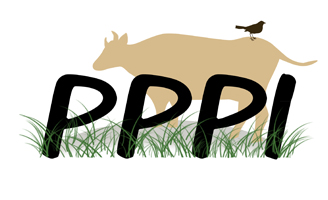This report out of the Manitoba CCPA, Reversing the Damage: How the Federal Liberals Can Restore Hope on the the Prairies discusses cuts to federal programs and employees, such as the closure of the PFRA Community Pastures Program (see pages 7-9 of the report). It contains recommendations for ensuring the continued stewardship of best management of the pastures.
Proper environmental assessment skipped on pasture transfer: Agriculture Canada
24 FebAgriculture and Agri-Food Canada Assistant Deputy Minister Greg Meredith confirmed Tuesday that no strategic environmental assessment was conducted before the government disbanded the Prairie Farm Rehabilitation Administration.
Meredith said a third-party environment assessment was conducted on the pastures for Environment Canada – but Agriculture and Agri-Food Canada did not conduct their own assessment, despite a cabinet directive requiring such an investigation be done.
[…] Agriculture and Agri-Food Canada’s admission comes the same day delegates at the Canadian Federation of Agriculture voted 81 per cent in favour of lobbying the federal government to impose a moratorium on the pasture transfers until producers are consulted.
Save the Date! PPPI AGM
22 FebSave the date – the PPPI Annual General Meeting will be held Saturday March 19 from 10 am to 4 pm, at the United Way Community Room, 1440 Scarth Street, Regina.
An agenda will be available shortly.
Making a Difference for the Community Pastures and our Grasslands
16 FebWe have received word that there is a possibility that the new federal government may consider reviewing the Harper decision to dump the PFRA pastures system. However, we are told that, for that to happen, our elected MPs, and the Minister of Agriculture Canada in particular, must hear about it from concerned citizens.
So we are asking everyone to send letters to the Minister of Agriculture, and the Minister of Environment and Climate Change, as well as the Hon. Ralph Goodale and the Prime Minister as soon as possible (see addresses below).
We have a brief window of opportunity to convey our deep concerns over the demise of the PFRA Pastures in Saskatchewan and to ask for the federal government to halt the transfer of the pasture lands and conduct a full review of the Harper government’s decision.
Your letters need not be long and detailed. A simple approach is to ask the federal government to halt the transfer of these pastures to the province of Saskatchewan which is not recognizing, managing or investing in the value of public goods on these vanishing grasslands.
We have heard from government sources that it important to emphasize the climate change benefits of native grassland but you should use your own words and choose any of the points listed below stating why these grasslands are important to you (e.g. climate change mitigation, conservation, Species at Risk, hunting, etc.) Tell them you want to live in a Canada that protects endangered landscapes and sustainable agriculture initiatives like the PFRA system always did.
We would also like people to request a full Strategic Environmental Assessment of the risks to the natural and human heritage in the PFRA Pastures, in accordance with The Cabinet Directive on the Environmental Assessment of Policy, Plan and Program Proposals.
It is very important that you include your full name and address, even if you are sending an email. Politicians always note the location where correspondence comes from. Be sure to request a reply to your letter.
Below are some points you may wish to reference in your letter. We suggest you select two or three and use your own words.
– The Community Pasture lands are not “just agricultural lands.”
– These pastures contain the largest and best managed grasslands in Saskatchewan.
– Some 80% of our natural landscape in southern Saskatchewan has been lost to development.
– These pastures are part of Canada’s commitment to its 2020 Biodiversity Goals, in accordance with the Global Aichi Biodiversity Targets.
– Prairie grasslands are vital elements of the public trust every bit as precious as our northern forests and lakes
– The prairies have more Species at Risk than any other region of Canada.
– Over 30 Species At Risk are found on the pastures.
– Carbon sequestration is an important benefit of native grasslands.
– Soil and water conservation is provided by the pastures.
– Pastures contain many heritage sites from indigenous people and homesteaders.
– Pastures provide important hunting opportunities, generating $70 million annually.
– Keeping the pastures publicly owned is the best way to protect the many benefits they provide.
– Indigenous rights to access the land based on international declarations would be harmed by privatization of the land.
– Producers should not be expected to pay for managing the land for public benefits.
– The many public benefits should be maintained and enhanced with public dollars.
– The Canadian people’s 75 year investment in the Community Pastures could be lost by eliminating the federal support for Community Pastures.
Address your letters to:
The Hon. Lawrence MacAulay, Minister of Agriculture and Agri-Food
Send copies to the PM and Ministers listed:
The Hon. Catherine McKenna, Minister of Environment and Climate Change.
The Hon. Ralph Goodale, Minister of Public Safety and Emergency Preparedness, and MP for Regina-Wascana
The Hon. Carolyn Bennett, Minister of Indigenous and Northern Affairs
The Right Hon. Justin Trudeau, Prime Minister of Canada
If you send your letter by regular mail, all mailing addresses are: House of Commons, Ottawa, Ont. K1A 0A6
No postage is required on any mail addressed to the House of Commons.
Many thanks, for your support. We believe we have a chance to make a difference with this letter campaign. Your letters are very important and could help turn the tide.

